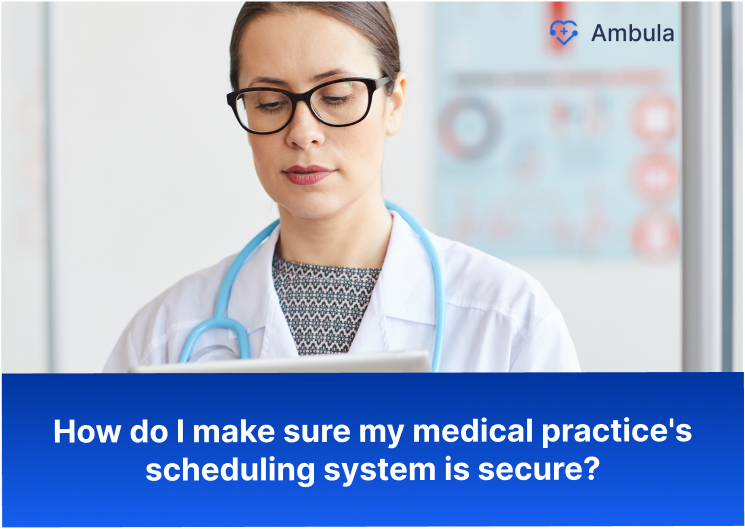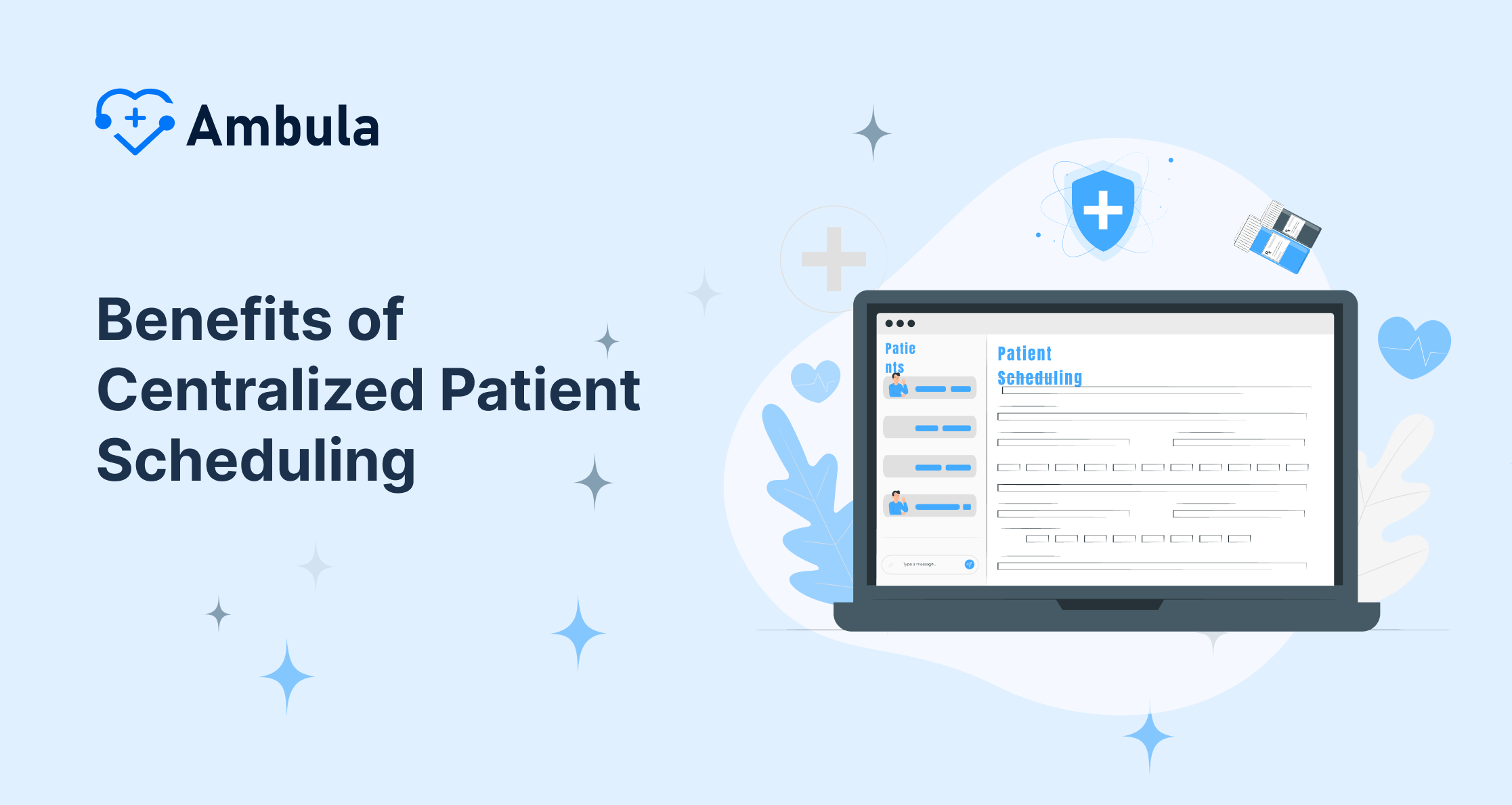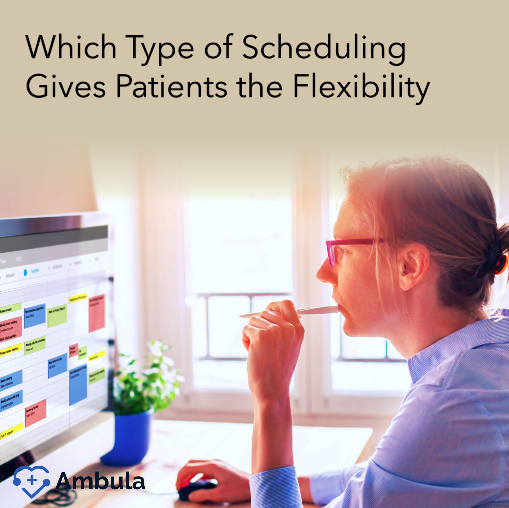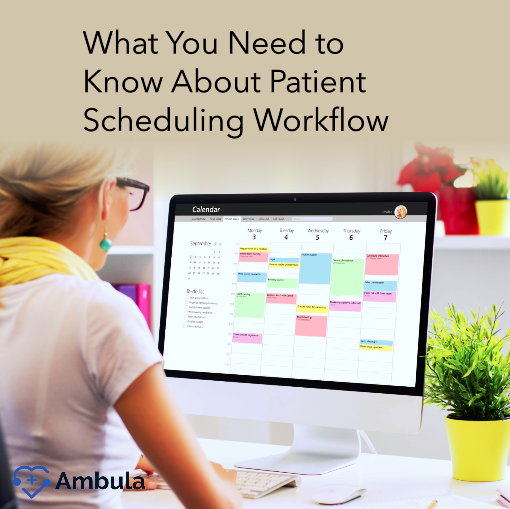
Ensuring your patient scheduling system is secure as a medical practice. Patient data must remain confidential and secure, and the scheduling system should be designed to protect against any unauthorized access or manipulation. This article will discuss the various steps you can take to ensure your medical practice’s scheduling system is secure.
Implement Security Protocols
Implementing security protocols is the first step in ensuring your medical practice’s secure scheduling system. These protocols should include access control measures such as authentication, authorization, and encryption. Authentication requires users to prove their identity before being granted access to the system, while commission determines the user’s access type. Encryption ensures that sensitive data is protected from unauthorized interception.
Check out these articles after you’re done
Regularly Monitor the System
It is essential to regularly monitor your medical practice’s scheduling system for any suspicious activity. This includes monitoring for unauthorized access attempts, suspicious changes to patient data, and any other suspicious activity. It is also essential to keep an audit trail of all changes made to the system so that any suspicious activity can be traced back to its source.
Use a Secure Hosting Provider
When looking for a hosting provider for your medical practice‘s scheduling system, choosing a secure and reliable one is essential. This includes selecting a provider with secure protocols such as SSL/TLS and a proven track record of providing fast hosting services. It is also necessary to ensure that the hosting provider complies with HIPAA regulations designed to protect the privacy of medical records.
Use a Secure Database
Another critical step in ensuring the security of your medical practice’s scheduling system is to use a secure database. This should be a database that is designed for storing sensitive information and is protected from unauthorized access. It is also essential to use a regularly backed-up database in case of system failures.
The database should be regularly monitored for suspicious activity and updated with the latest security fixes. Finally, it is also important to use encryption to protect any sensitive data stored in the database. This can be done through the use of a secure SSL connection or by using a secure transport layer such as SSH.
Use Encryption
Encryption is a powerful tool for protecting sensitive information and is essential for ensuring the security of your medical practice‘s scheduling system. Encryption scrambles data so that it cannot be read without the proper key, and it can help to protect data from unauthorized access or manipulation. It is essential to use a robust encryption algorithm, such as AES, and to change the encryption keys regularly.
Use Access Control Measures
In addition to encryption, it is essential to use access control measures to protect your medical practice’s scheduling system. This includes user authentication and authorization measures to ensure only authorized users can access the system. It is also essential to use role-based access control, which determines each user’s access type and regularly reviews access rights.
Train Employees
Employees should be adequately trained on the scheduling system and be aware of any security protocols. This includes being mindful of the importance of protecting patient data, as well as any access control measures that are in place. Employee training should also include regularly reviewing the system for any suspicious activity.
Use External Security
Audits In addition to internal security measures, it is also important to use external security audits to ensure the security of your medical practice’s scheduling system. An external security audit can help to identify any weaknesses or vulnerabilities in the design, as well as any areas that need to be improved.
Update Regularly
It is essential to keep your medical practice’s scheduling system updated with the latest security patches and updates. This ensures that new security vulnerabilities are addressed quickly and that the system remains secure. It is also essential to regularly review the system and make any necessary changes to stay safe.
Perform Disaster Recovery Tests
It is also essential to perform disaster recovery tests regularly to ensure the system can be quickly restored during a disaster. These tests should include backups of the system, as well as tests to ensure that the system can be quickly and safely restored in the event of an emergency.
Conclusion
Ensuring the security of your medical practice’s scheduling system is essential in protecting patient data and maintaining confidentiality. By following the steps outlined in this article, you can help to ensure that your scheduling system is secure and that patient data is protected from unauthorized access or manipulation.





